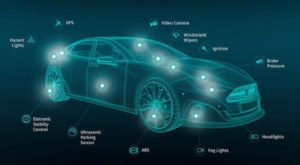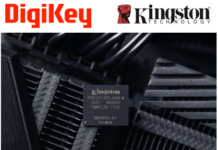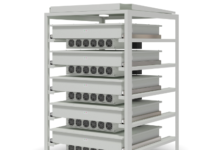
Self-driving cars are one of the hot emerging industries in tech, and Taiwan’s MediaTek wants in on it. The semiconductor chip maker is announcing today a plan to bring out a family of integrated chips for the automotive industry in the first quarter of 2017.
With its chips used in 1.5 billion consumer devices per year, MediaTek is already a big player in chips for mobile, home entertainment, connectivity, and the Internet of Things. Now the company wants to address a key problem for the future of driving: fragmentation.
Car makers often work with multiple vendors that specialize in a single, “best-in-class” solution. Products are thereby sourced separately and don’t always “talk” to one another seamlessly.
“MediaTek-powered cars of the future will incorporate the best of autonomous driving, infotainment, and convenience features across one seamlessly integrated package of semiconductors,” said JC Hsu, corporate vice president and general manager of the IoT Business Unit at MediaTek, in a statement. “We are designing solutions for our customers and the auto industry that meet demands for high performance yet [are the] extremely power-efficient solutions needed to make mass market autonomous vehicles a reality.”
MediaTek solutions for automotive companies will cover four key areas. One of them is the reconstructed vision advanced driver assistance system (V-ADAS). It will use decentralized vision processing unit (VPU) solutions to handle large amounts of visual streaming data. MediaTek said it uses machine learning to increase the accuracy and speed of detection, recognition, and tracking, making it more comparable to human decision-making performance.
It will also have precision millimeter wave radar. MediaTek is drawing on its technology expertise in 3G and 4G connectivity to develop an advanced, 5G network solution. MediaTek will bring the automotive industry millimeter wave radar solutions that use higher frequencies than currently available to automakers in order to gain better object resolution and more precise detection than traditional ultrasound solutions.
MediaTek will also offer infotainment chips. The company has developed high-powered 2D and 3D processing technologies to ensure its application processors perform efficiently without overheating.
And the company is making chips for enhanced telematics. The chips will focus on power-efficiency; highly integrated system-in-packages; broad networking and connectivity support; and, quick and efficient processing technologies.
“The complicated systems of tomorrow’s high-tech cars will require a high degree of integration, innovative power management, and improved functionality to support both the highest level of safety demands and driving experiences consumers need,” said Hsu. “The cars of the future powered by MediaTek will incorporate one seamlessly integrated package of semiconductors — a holistic solution that is now lacking in the auto industry.”
Source: http://venturebeat.com/


















